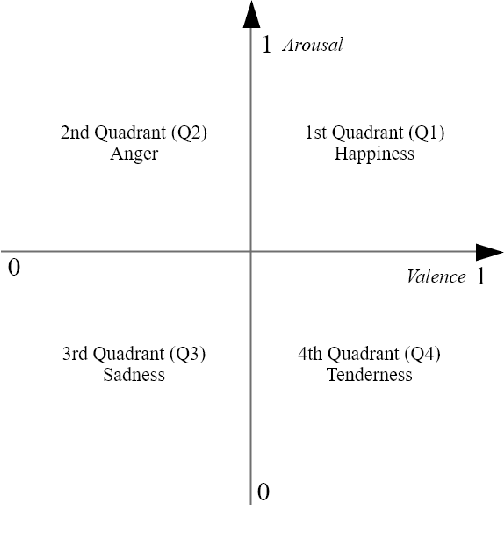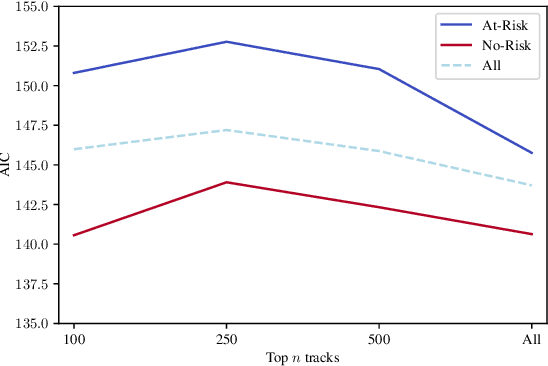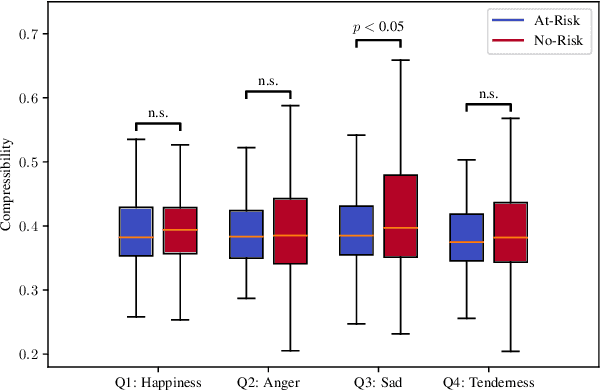How Much do Lyrics Matter? Analysing Lyrical Simplicity Preferences for Individuals At Risk of Depression
Paper and Code
Sep 15, 2021



Music affects and in some cases reflects one's emotional state. Key to this influence is lyrics and their meaning in conjunction with the acoustic properties of the track. Recent work has focused on analysing these acoustic properties and showing that individuals prone to depression primarily consume low valence and low energy music. However, no studies yet have explored lyrical content preferences in relation to online music consumption of such individuals. In the current study, we examine lyrical simplicity, measured as the Compressibility and Absolute Information Content of the text, associated with preferences of individuals at risk for depression. Using the six-month listening history of 541 Last.fm users, we compare lyrical simplicity trends for users grouped as being at risk (At-Risk) of depression from those that are not (No-Risk). Our findings reveal that At-Risk individuals prefer songs with greater information content (lower Compressibility) on average, especially for songs characterised as Sad. Furthermore, we found that At-Risk individuals also have greater variability of Absolute Information Content across their listening history. We discuss the results in light of existing socio-psychological lab-based research on music habits associated with depression and their relevance to naturally occurring online music listening behaviour.
 Add to Chrome
Add to Chrome Add to Firefox
Add to Firefox Add to Edge
Add to Edge